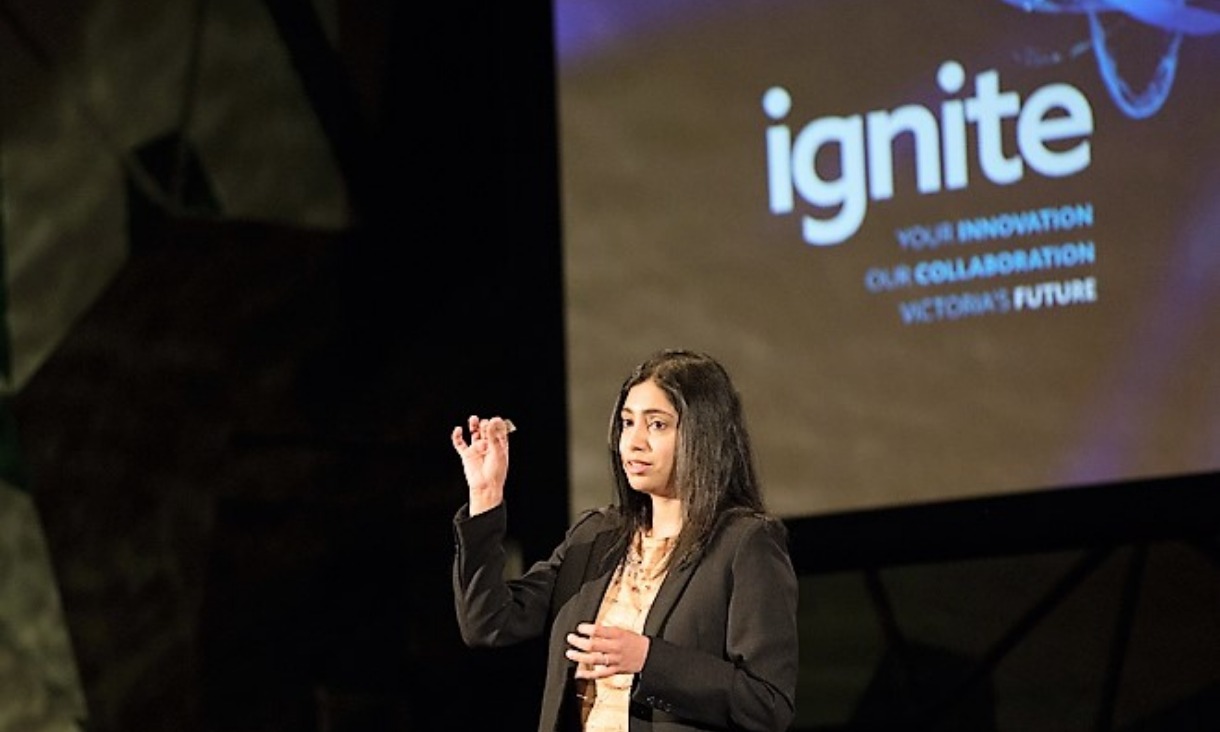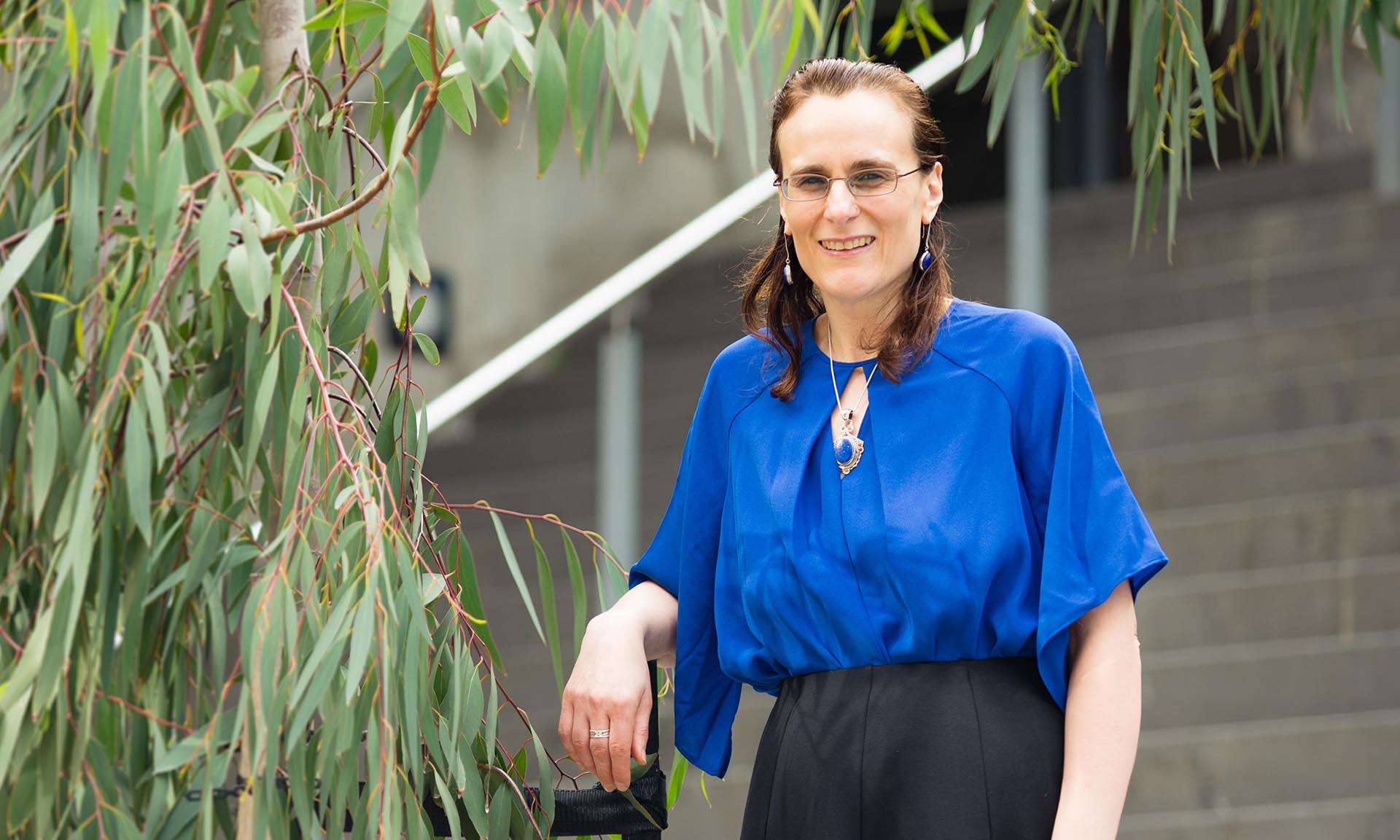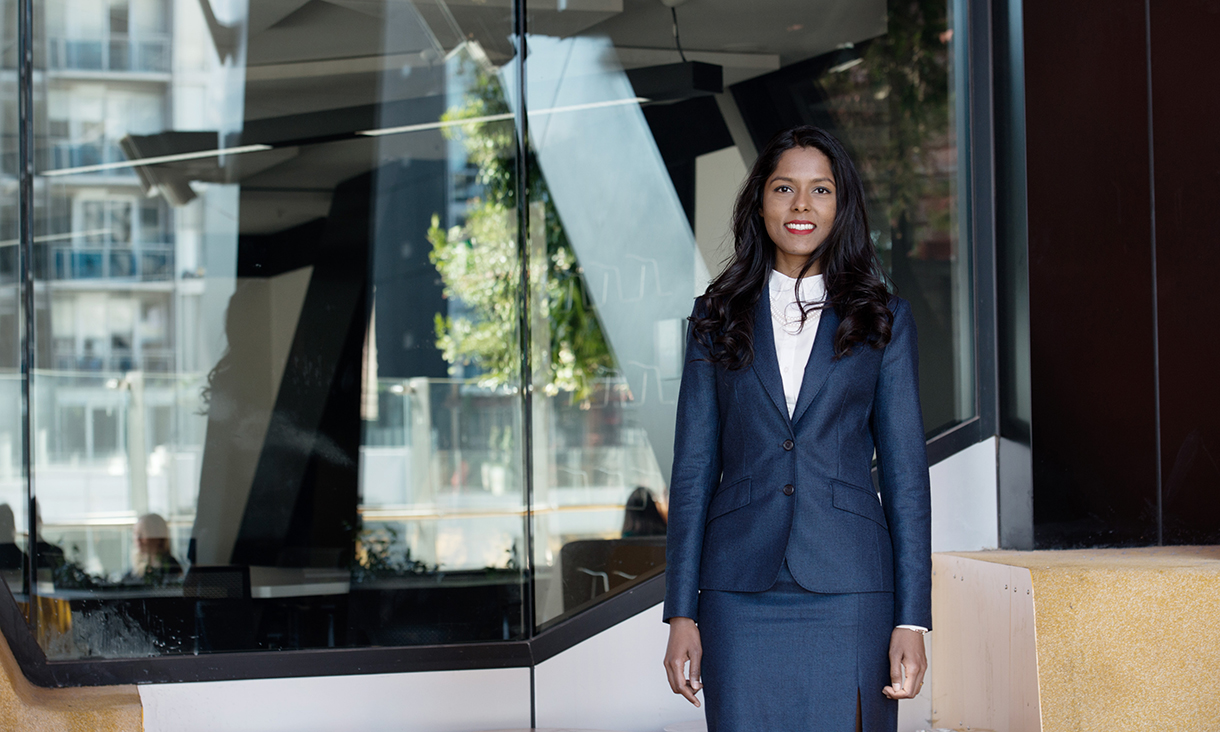RMIT’s work in nanotechnology – the science of developing materials or devices at a microscopic scale – is capturing global attention for its enormous potential to revolutionise healthcare, computing, telecommunications and environmental protection.
RMIT has positioned itself to help industry unlock the opportunities from this micro world that enables the manipulation of particles that are one-billionth of a metre in diameter (one nanometre). To put a nanometre into perspective, the diameter of a human hair is roughly 75,000 nanometres.
From wearable electronics that detect UV radiation and toxic gases, to more effective drug delivery through targeted and controlled release, RMIT nanotechnology is driving major advances across medical science and disease treatment.
Ignite series
Last week, three of RMIT’s leading researchers introduced an audience of business leaders to some exciting and rapidly expanding business opportunities thanks to their breakthroughs in nanotechnology.
The event was part of the ignite program; a collaboration between the Victorian Chamber of Commerce and Industry, CSIRO and the Victorian Government.
RMIT University Vice Chancellor Martin Bean CBE said the Ignite series enabled RMIT to showcase its innovative and practical approach to research.
“At RMIT we're proud of our distinctive research capabilities and we're passionate about working alongside industry to co-create solutions to real world problems," he said.
"It's only by creating partnerships with business, bridging that gap between research and impact, and taking leaps together that we can fuel the kind of innovation and creativity that can shape the world."
RMIT University researchers featured at ignite:
Distinguished Professor Arnan Mitchell has been leading Australia’s micro and nanotechnology breakthroughs for decades and is Director of RMIT’s state-of-the-art MicroNano Research Facility.
His diverse interests include lab-on-a-chip research bringing together electronics, fluidics and light on a single integrated circuit. These chips could revolutionise and simplify drug discovery, predictive toxicology and even environmental monitoring. Along with his team, Mitchell is also working on low-cost, low-energy chips that will help data centres increase their computing power and reduce energy consumption.
Associate Professor Madhu Bhaskaran is a Eureka-prize winning engineer recognised for her development of transparent stretchable and wearable electronic devices. Her sensors have the potential to help the fight against skin cancer, and detect dangerous gases in mines. They could also deliver new technologies like flat optical devices, and smart contact lenses.
Bhaskaran has also been named one of Australia’s top innovators by Engineers Australia.
Professor Leslie Yeo has developed and patented a revolutionary new nebuliser that could one day deliver life-saving cancer drugs and vaccines, traditionally given by injection.
Low-cost, light-weight and portable, the advanced nebuliser delivers precise drug doses to patients with life-threatening or debilitating lung conditions including cancer, tuberculosis, asthma and cystic fibrosis. Johnson & Johnson have awarded Yeo and his team funding to further develop the technology.
Interested in finding our more about how to work with RMIT? Contact our Industry Engagement Team on +613 9925 5110, email industryconnect@rmit.edu.au or click here





